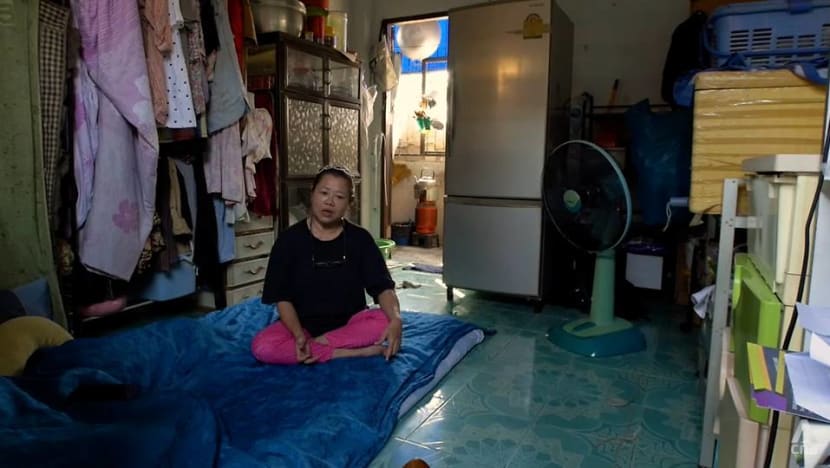The number of Thai people suffering from mental health issues increased from 1.3 million in 2015 to 2.3 million last year, while suicides also increased tenfold.
These troubling statistics show that the country’s mental health is a ticking time bomb that must be addressed immediately to avoid terrible consequences.
One mother expressed her agony as she watched her son’s life spiral out of control after he chose a road of drug misuse to deal with his mental challenges, according to Thai PBS News.
“I observed a difference in his behaviour, but I couldn’t afford treatment,” the mother said, speaking on anonymity.
Before his mental health began to deteriorate, her son, now 25, worked as a mechanic in auto garages.
“These days, he just sits motionless, staring into space all day,” she explained. “I don’t have the money or the social standing to send him to drug rehab.”
Limited Psychiatrists in Thailand
There are only 845 practicing psychiatrists in Thailand, or around one for every 100,000 inhabitants. However, it is estimated that one out of every 2,721 persons requires therapy.
Thailand’s ratio is insignificant compared to Switzerland, which has 47.17 psychiatrists per 100,000 people.
Because of their heavy workload, psychiatric therapists in Thailand’s public hospitals have limited time to give to each patient.
According to Asst Prof Dr. Thammanard Charernboon’s report, each counselling session for a returning patient should last at least 15 minutes, while each counselling session for a new patient should be at least half an hour.
“According to this criteria, psychiatrists should commit no more than four hours to 20 patients,” the paper said.
Currently, government psychiatrists serve between 30 and 50 patients every four hours to avoid interminable wait times.
Mental health deteriorated
Orn, 45, has suffered mental health problems for almost a decade. She worked hard to manage her job and coworkers, but she eventually gave up because her mental health deteriorated.
“It took my family and me a long time to face the fact – that I’m mentally sick,” she added. “It’s hard to face the music. We only began to face this unpleasant reality once my mental illness negatively impacted those around me.”
Her family stated they contacted various state institutions hoping to make an appointment with a psychiatrist were told they would have to wait three to four months.
“Because my family felt I couldn’t wait any longer, I was admitted to a private hospital.” The doctor’s fees and medications were prohibitively expensive, and I had health insurance. “But there was no other option if I wanted to save my mental health,” she explained.
Her first appointment lasted nearly an hour, and she had to see her psychiatrist every month. Each appointment cost approximately 20,000 baht, most of the money going toward the medications she was prescribed.
“They were pricey. But I couldn’t have lived with others if it hadn’t been for the treatment,” Orn admitted bluntly.
She said that as soon as her illness improved, she stopped going to the doctor to save money. She is currently taking over-the-counter medications and is on a waiting list to see a public health psychiatrist.
Time to Train Psychiatrists
According to Dr. Varoth Chotpitayasunondh, a spokesperson for the Mental Health Department, it takes a long time to aquire a psychiatrist because training can only begin after students have graduated from medical school and spent three years as general practitioners.
General psychiatrists must complete three years of training, while those interested in child and adolescent mental health must complete an additional year.
“Training is also not free. Aspirants must fund the costs themselves or receive a scholarship, according to Dr. Varoth, who is also a psychiatrist.
He also stated that only a few scholarships are available in this field because relevant firms only provide financial assistance when they need to find replacements.
“Production capacity is also limited since we need to prepare three very experienced lecturers specialized in the discipline to produce a psychiatrist,” he explained. “We don’t have many psychiatrists, let alone specialists, in the country.”
Can clinical psychologists help?
Thailand might take solace in the knowledge that clinical psychologists can perform some of the functions of psychiatrists. However, they cannot prescribe medications. These healthcare experts, however, are in short supply.
“We also have a clinical psychologist shortage,” Varoth stated.
There is no psychologist at any state hospitals in Trat, Phrae, Samut Songkhram, Sing Buri, Nong Bua Lamphu, or Ang Thong, while Loei has only one psychologist for 52,717 patients.
The Thai Counseling Psychology Association and the Mental Health Department are collaborating closely to establish standards so that counselling psychologists can help fill the gap.
This procedure, however, is projected to take another four or five years because it involves numerous stakeholders and necessitates the development of robust regulations.
Suicide Crisis in northern Thailand
Suicide appears to be the most common in Thailand’s northern areas. For three of the five years between 2016 and 2020, Mae Hong Son had the greatest number of self-inflicted deaths. Suicides were also common in Chiang Mai, Chiang Rai, Phrae, Tak, Nan, and Lampang. Except for Tak, all of these provinces are in the north.
Suicides per 100,000 individuals in Mae Hong Son were 17.44 in 2020, whereas the percentages in Tak and Chiang Mai were 15.46 and 14.61, respectively.
“We’ve found that more and more people in Thailand are suffering from depression,” Varoth added.
As of June this year, an estimated 1.35 million Thais were depressed. Meanwhile, the number of patients receiving depression treatment increased from 4,295 in 2013 to 259,467 in 2017.
“This increase can be attributed to increased stress and knowledge of mental health issues,” Dr. Varoth explained.









